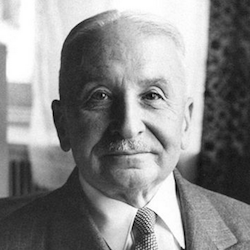
By Paul-Martin Foss
Ludwig von Mises was born on September 29, 1881 in Lemberg, Austria-Hungary (now Lviv, Ukraine). A member of the third generation of the Austrian School of Economics, Mises’ major contributions were in the field of monetary theory. His writings on money and the Austrian theory of the business cycle continue to open the eyes of many people. If there is one book to read today to celebrate Ludwig von Mises’ birthday, it would be his early book, The Theory of Money and Credit. Its insights into money and credit are still highly relevant today. Not only that, but this particular edition also includes additional material written by Mises decades after its first publication. The reader is able to compare the early Mises, who was more trusting of government control over the monetary system, with the later Mises who was much less so. Unlike Keynesians and other mainstream economists who ignore experience and continue to maintain a religious belief in the ability of governments to administer and control monetary policy, Mises experienced the horrors of the 20th century and saw what governments were able to do in all matters monetary. Governments abandoned the gold standard for fiat money, abandoning sound monetary systems and enabling the growth of government that culminated in the dictatorial regimes and wholesale slaughter of innocents in the mid-20th century. Mises knew the dangers of continued unfettered money creation and was relentless in his devotion to principle and educating about the importance of sound money. His distrust of government control over money was carried on by his students and followers, including Murray Rothbard, and found its culmination in Congressman Ron Paul’s efforts to end the US government’s legal barriers to the use of gold and other currencies. If policymakers would only open their eyes to Mises teachings and absorb his lessons, we wouldn’t have to deal with financial crises and the continued boom and bust of the business cycle. This article was originally published at The Carl Menger Center Comments are closed.
|
Archives
July 2024
|

 RSS Feed
RSS Feed



